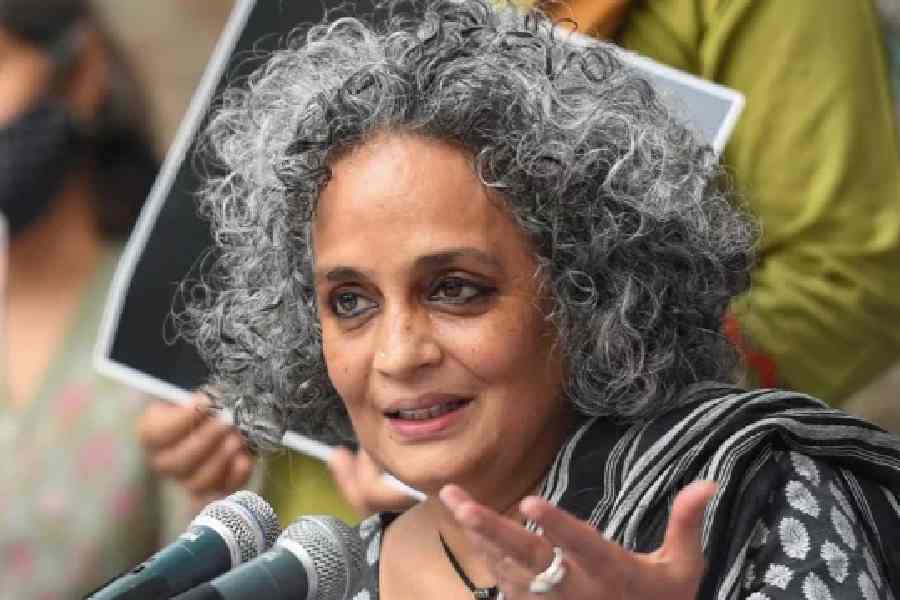In his Nobel Prize acceptance speech, the playwright, Harold Pinter, had asked for a “fierce intellectual determination” to define the truth of contemporary lives and societies. This forms the principle of the PEN Pinter Prize, which has been awarded this year to Arundhati Roy. The judges have spoken of the “luminous voice of freedom” in her “unflinching and unswerving” writings — Pinter’s words again — that uphold social justice, human rights and environmental welfare. In spite of being focused on India, her voice is international, according to the judges’ panel. That remark seems to underline the fact that the prize has coincided with Ms Roy being charged in her own country under the Unlawful Activities (Prevention) Act because of a remark that she made in a seminar 14 years ago. The contrast in perceptions — the Indian government’s with that of a prestigious overseas body which believes in excellence, courage, freedom of expression and, most important, the writer’s unwavering responsibility — throws light on a remark by one judge, who referred to the timeliness of Ms Roy’s works when the world is facing the moments created by “deep histories”, as in Gaza.
Deep history engages in time-scales much greater than the immediate past and present; it is not the history of kings, queens and politicians. As an intellectual or academic discipline, it engages scholars in different fields, such as archaeology, paleontology, ethnology, linguistics, geology and so on, who search for the traces, conditions and trajectories of social evolution. In its more general sense, as in the reference to Gaza, it brings to mind years of the complicated interweaving of people’s aspirations and rights with conflicts born of world events, and the gradual moulding of attitudes and divergent values that may result, in situations like Gaza for example, in repeated violence, repression, pain, suffering, death and destruction. There is not one such history but many. It is these pasts and depths that writers seek, in spite of opposition and even repression. It is no surprise that Salman Rushdie was another recipient of the prize.
India’s deep histories lie behind much of the present hatred and violence. They long predate Independence and Partition, which are comparatively recent events in that time-scale. That is why the purveyors of hatred find it necessary to distort historical facts and developments from ancient times, creating myths to overlay the defining truths that are discerned by thinkers, scholars and experts in unearthing continuities and disruptions through time. In a time so out of joint, the judges of the PEN Pinter Prize have found in Ms Roy the intellectual determination to penetrate the inner springs of events and the stifling of values. That she is being charged with ‘unlawful activities’ for expressing her point of view at a seminar even before the present government came into power is a remarkable — and ironic — manifestation of the ‘deep histories’ that haunt India almost a hundred years since its people became ‘free’.











